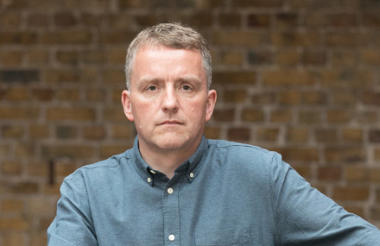The government viewed the charity sector as “an irrelevance” during the Covid-19 crisis, according to NCVO chief executive Karl Wilding.
Speaking on a panel this morning at the Voluntary Sector and Volunteering Research online conference, Wilding also said that he had sometimes been “a bit embarrassed” by the speed with which businesses had been able to respond to the impact of the pandemic compared to charities.
Charities not seen as 'part of the solution’
Wilding, who was involved in negotiations with officials about financial support for the charity sector at the start of the coronavirus crisis, argued that the relationship between government and charities went beyond the “falling out” described by other commentators.
He said: “I think it’s possibly worse than that.
“I think it was a perception in government that we were basically an irrelevance, that we weren’t part of the solution when it came to solving society’s problems.”
Challenges facing the sector
Wilding also outlined a series of difficulties facing the sector, saying that charities will be confronted with “significant financial challenges” for many years to come.
The challenges he identified included tensions between “traditional civil society infrastructure” and the informal mutual aid groups which had arisen at local levels to help out during the crisis.
Wilding said: “A good example of that would be safeguarding, where some mutual aid groups were not keen on the approach to safeguarding which some traditional organisations have used.”
He later warned against “fetishising” mutual aid groups as a solution to social problems.
There have also been tensions around whether the short-term response by funders recognised the disproportionate impact of the pandemic on Black and ethnic minority communities, Wilding said.
Embarrassed
Wilding praised charities like Royal Voluntary Service, which had been able to “mobilise at scale” very quickly in response to the pandemic, but also said: “I found myself being a bit embarrassed at times when you had business organisations who were saying, ‘If you need to do food deliveries, we have a fleet of vans that we can offer to you’.
“And we just couldn’t mobilise quickly enough to take advantage of those things.”
'Local government has rediscovered us'
Wilding said that he hoped the crisis might result in “more people being interested and engaged in community, and more interested in a sense of the local than they were before”.
He added: “A think a second cause for optimism is that local government has rediscovered our sector.”
Surprise at furlough decisions
Speaking on the same panel, Anna Fowlie, the chief executive at SCVO, said she was “a bit astonished that fundraisers were the first people to get furloughed at this time, because I thought they were never more needed, they were absolutely essential”.
Data released in June showed that 160,000 charity staff were furloughed in the first six weeks of the scheme.
Fowlie also said that, contrary to Wilding’s experience of the Westminster government, ministers and officials in Scotland “stepped up pretty quickly” to support the local charity sector, through both direct funding and grants via local government.
Affan Cheema, head of programmes quality at Islamic Relief Worldwide, told the panel that his charity “needed some real innovation” to adapt when Covid-19 restrictions began in the middle of Ramadan, the month when it makes 40% of its fundraising income.
That included greater investment in direct marketing to potential donors and the creation of “virtual mosques”, Cheema explained.
He said that Islamic Relief Worldwide ended up raising more money than in previous years, but warned that if this was because the economic impact of the pandemic had not yet been felt, “we may be hit further on down the line”.
Related articles












